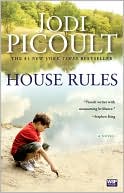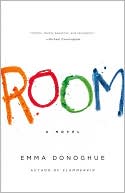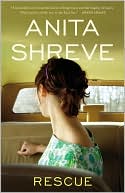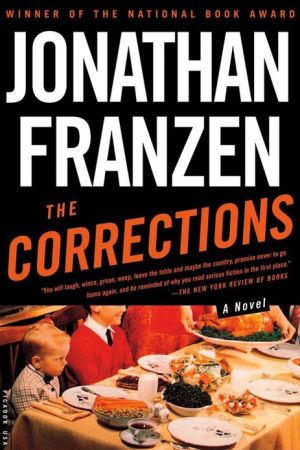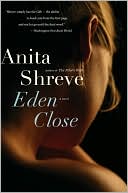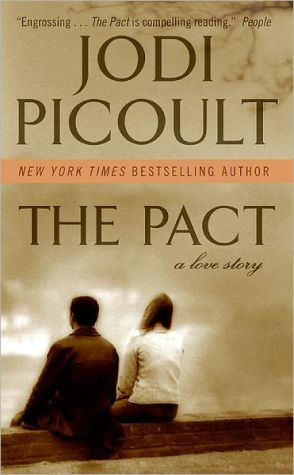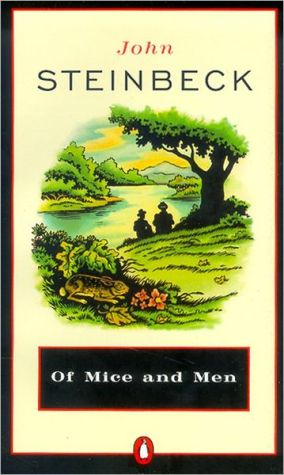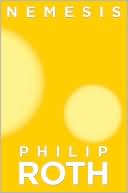The Broken Window: A Lincoln Rhyme Novel
Bestselling master of suspense Jeffery Deaver is back with a brand-new Lincoln Rhyme thriller. Lincoln Rhyme and partner/paramour Amelia Sachs return to face a criminal whose ingenious staging of crimes is enabled by a terrifying access to information.... When Lincoln's estranged cousin Arthur Rhyme is arrested on murder charges, the case is perfect -- too perfect. Forensic evidence from Arthur's home is found all over the scene of the crime, and it looks like the fate of Lincoln's...
Search in google:
Bestselling master of suspense Jeffery Deaver is back with a brand-new Lincoln Rhyme thriller. Lincoln Rhyme and partner/paramour Amelia Sachs return to face a criminal whose ...Publishers WeeklyDennis Boutsikaris's reading of Deaver's latest Lincoln Rhyme thriller is positively chilling. When the quadriplegic detective's cousin is arrested for murder, it seems to be an open-and-shut case, as plenty of forensic evidence links him to the crime. But Lincoln discovers that the real killer is framing others for his killings by manipulating intimate computer information. A deadly game of cat and mouse pits Lincoln; his partner, Amanda Sachs; and the rest of his NYPD crew against an adversary who is consistently one step ahead of them. Boutsikaris's reading is excellent, but he really ratchets the intensity when performing the passages told from the killer's point of view. His delivery fully embraces the cold, calculating mind of the murderer, imbuing his seemingly dispassionate thoughts with an underlying sense of barely controlled rage and menace. A Simon & Schuster hardcover (Reviews, Apr. 14). (July)Copyright © Reed Business Information, a division of Reed Elsevier Inc. All rights reserved.
Chapter One \ Something nagged, yet she couldn't quite figure out what.\ Like a faint recurring ache somewhere in your body.\ Or a man on the street behind you as you near your apartment...Was he the same one who'd been glancing at you on the subway?\ Or a dark dot moving toward your bed but now vanished. A black widow spider?\ But then her visitor, sitting on her living room couch, glanced at her and smiled and Alice Sanderson forgot the concern — if concern it was. Arthur had a good mind and a solid body, sure. But he had a great smile, which counted for a lot more.\ "How 'bout some wine?" she asked, walking into her small kitchen.\ "Sure. Whatever you've got."\ "So, this's pretty fun — playing hooky on a weekday. Two grown adults. I like it."\ "Born to be wild," he joked.\ Outside the window, across the street, were rows of painted and natural brownstones. They could also see part of the Manhattan skyline, hazy on this pleasant spring weekday. Air — fresh enough for the city — wafted in, carrying the scents of garlic and oregano from an Italian restaurant up the street. It was their favorite type of cuisine — one of the many common interests they'd discovered since they'd met several weeks ago at a wine tasting in SoHo. In late April, Alice had found herself in the crowd of about forty, listening to a sommelier lecture about the wines of Europe, when she'd heard a man's voice ask about a particular type of Spanish red wine.\ She had barked a quiet laugh. She happened to own a case of that very wine (well, part of a case now). It was made by a little-known vineyard. Perhaps not the best Rioja ever produced but the wine offered another bouquet: that of fond memory. She and a French lover had consumed plenty of it during a week in Spain — a perfect liaison, just the thing for a woman in her late twenties who'd recently broken up with her boyfriend. The vacation fling was passionate, intense and, of course, doomed, which made it all the better.\ Alice had leaned forward to see who'd mentioned the wine: a nondescript man in a business suit. After a few glasses of the featured selections she'd grown braver and, juggling a plate of finger food, had made her way across the room and asked him about his interest in the wine.\ He'd explained about a trip he'd taken to Spain a few years ago with an ex-girlfriend. How he'd come to enjoy the wine. They'd sat at a table and talked for some time. Arthur, it seemed, liked the same food she did, the same sports. They both jogged and spent an hour each morning in overpriced health clubs. "But," he said, "I wear the cheapest JCPenney shorts and T-shirts I can find. No designer garbage for me..." Then he'd blushed, realizing he'd possibly insulted her.\ But she'd laughed. She took the same approach to workout clothes (in her case, bought at Target when visiting her family in Jersey). She'd quashed the urge to tell him this, though, worried about coming on too strong. They'd played that popular urban dating game: what we have in common. They'd rated restaurants, compared Curb Your Enthusiasm episodes and complained about their shrinks.\ A date ensued, then another. Art was funny and courteous. A little stiff, shy at times, reclusive, which she put down to what he described as the breakup from hell — a long-term girlfriend in the fashion business. And his grueling work schedule — he was a Manhattan businessman. He had little free time.\ Would anything come of it?\ He wasn't a boyfriend yet. But there were far worse people to spend time with. And when they'd kissed on their most recent date, she'd felt the low ping that meant, oh, yeah: chemistry. Tonight might or might not reveal exactly how much. She'd noticed that Arthur had furtively — he thought — been checking out the tight pink little number she'd bought at Bergdorf's especially for their date. And Alice had made some preparations in the bedroom in case kissing turned into something else.\ Then the faint uneasiness, the concern about the spider, returned.\ What was bothering her?\ Alice supposed it was nothing more than a residue of unpleasantness she'd experienced when a deliveryman had dropped off a package earlier. Shaved head and bushy eyebrows, smelling of cigarette smoke and speaking in a thick Eastern European accent. As she'd signed the papers, he'd looked her over — clearly flirting — and then asked for a glass of water. She brought it to him reluctantly and found him in the middle of her living room, staring at her sound system.\ She'd told him she was expecting company and he'd left, frowning, as if angry over a snub. Alice had watched out the window and noted that nearly ten minutes had passed before he got into the double-parked van and left.\ What had he been doing in the apartment building all that time? Checking out —\ "Hey, Earth to Alice..."\ "Sorry." She laughed, continued to the couch, then sat next to Arthur, their knees brushing. Thoughts of the deliveryman vanished. They touched glasses, these two people who were compatible in all-important areas — politics (they contributed virtually the same amount to the Dems and gave money during NPR pledge drives), movies, food, traveling. They were both lapsed Protestants.\ When their knees touched again, his rubbed seductively. Then Arthur smiled and asked, "Oh, that painting you bought, the Prescott? Did you get it?"\ Her eyes shone as she nodded. "Yep. I now own a Harvey Prescott."\ Alice Sanderson was not a wealthy woman by Manhattan standards but she'd invested well and indulged her true passion. She'd followed the career of Prescott, a painter from Oregon who specialized in photorealistic works of families — not existing people but ones he himself made up. Some traditional, some not so — single parent, mixed race or gay. Virtually none of his paintings were on the market in her price range but she was on the mailing lists of the galleries that occasionally sold his work. Last month she'd learned from one out west that a small early canvas might be coming available for $150,000. Sure enough, the owner decided to sell and she'd dipped into her investment account to come up with the cash.\ That was the delivery she'd received today. But the pleasure of owning the piece now diminished again with a flare-up of concern about the driver. She recalled his smell, his lascivious eyes. Alice rose, on the pretense of opening the curtains wider, and looked outside. No delivery trucks, no skinheads standing on the street corner and staring up at her apartment. She thought about closing and locking the window, but that seemed too paranoid and would require an explanation.\ She returned to Arthur, glanced at her walls and told him she wasn't sure where to hang the painting in her small apartment. A brief fantasy played out: Arthur's staying over one Saturday night and on Sunday, after brunch, helping her find the perfect place for the canvas.\ Her voice was filled with pleasure and pride as she said, "You want to see it?"\ "You bet."\ They rose and she walked toward the bedroom, believing that she heard footsteps in the corridor outside. All the other tenants should have been at work, this time of day.\ Could it be the deliveryman?\ Well, at least she wasn't alone.\ They got to the bedroom door.\ Which was when the black widow struck.\ With a jolt Alice now understood what had been bothering her, and it had nothing to do with the deliveryman. No, it was about Arthur. When they'd spoken yesterday he'd asked when the Prescott would be arriving.\ She'd told him she was getting a painting but had never mentioned the artist's name. Slowing now, at the bedroom door. Her hands were sweating. If he'd learned of the painting without her telling him, then maybe he'd found other facts about her life. What if all of the many things they had in common were lies? What if he'd known about her love of the Spanish wine ahead of time? What if he'd been at the tasting just to get close to her? All the restaurants they knew, the travel, the TV shows...\ My God, here she was leading a man she'd known for only a few weeks into her bedroom. All her defenses down...\ Breathing hard now...Shivering.\ "Oh, the painting," he whispered, looking past her. "It's beautiful."\ And, hearing his calm, pleasant voice, Alice laughed to herself. Are you crazy? She must have mentioned Prescott's name to Arthur. She tucked the uneasiness away. Calm down. You've been living alone too long. Remember his smiles, his joking. He thinks the way you think.\ Relax.\ A faint laugh. Alice stared at the two-by-two-foot canvas, the muted colors, a half dozen people at a dinner table looking out, some amused, some pensive, some troubled.\ "Incredible," he said.\ "The composition is wonderful but it's their expressions that he captures so perfectly. Don't you think?" Alice turned to him.\ Her smile vanished. "What's that, Arthur? What are you doing?" He'd put on beige cloth gloves and was reaching into his pocket. And then she looked into his eyes, which had hardened into dark pinpricks beneath furrowed brows, in a face she hardly recognized at all. Copyright © 2008 by Jeffery Deaver
\ Publishers WeeklyDennis Boutsikaris's reading of Deaver's latest Lincoln Rhyme thriller is positively chilling. When the quadriplegic detective's cousin is arrested for murder, it seems to be an open-and-shut case, as plenty of forensic evidence links him to the crime. But Lincoln discovers that the real killer is framing others for his killings by manipulating intimate computer information. A deadly game of cat and mouse pits Lincoln; his partner, Amanda Sachs; and the rest of his NYPD crew against an adversary who is consistently one step ahead of them. Boutsikaris's reading is excellent, but he really ratchets the intensity when performing the passages told from the killer's point of view. His delivery fully embraces the cold, calculating mind of the murderer, imbuing his seemingly dispassionate thoughts with an underlying sense of barely controlled rage and menace. A Simon & Schuster hardcover (Reviews, Apr. 14). (July)\ Copyright © Reed Business Information, a division of Reed Elsevier Inc. All rights reserved.\ \ \ \ \ Library JournalDeaver's (The Sleeping Doll) latest novel, which pairs disabled criminologist Lincoln Rhyme and Detective Amelia Sachs for the eighth time, is sure to be one of his most popular books to date. When Lincoln suspects his cousin is being framed for murder, other similar cases of stolen identities and innocent people being set up lead him to a data mining company. However, Lincoln is able to track the real killer by exposing crime-scene evidence unintentionally left behind. As the killer feels the police closing in on him, he targets his pursuers by messing with their records, changing information to complicate their lives. Pertinent to today's society of credit cards and computer data, Deaver's thriller reminds us how vulnerable we really are and will be an essential purchase for all public libraries. [See Prepub Alert, LJ2/15/08.]\ —Amanda Scott\ \ \ \ Kirkus ReviewsIt's a must-solve case for quadriplegic criminalist Lincoln Rhyme when his cousin is arrested for murder. The evidence seems incontrovertible. Arthur Rhyme came over to Alice Sanderson's apartment-leaving generous amounts of trace evidence from his home and DNA traces from his person-then attacked and killed her; stole a prized painting she'd just purchased; and left, obligingly depositing trace evidence from the crime scene back home. But since Rhyme can't believe that his cousin killed anyone, he's forced to conclude that there's been an elaborate frame-up by someone who may well have done the same thing before. Fans of the serial-killer specialist (The Cold Moon, 2006, etc.) won't be surprised when Rhyme, his partner Amelia Sachs and the rest of the NYPD crew he's hastily cobbled together turn up two well-nigh identical crimes that exonerate Arthur to their satisfaction, even though he continues to languish in a lockup that seems to get more dangerous by the hour. A rare slip by the elusive killer leaves Rhyme with a bag of material he'd been on his way to plant at the home of still another innocent suspect. The big catch here is a Post-It note that sends Rhyme and company to Strategic Systems Datacorp, which collects and resells data, mountains of data, on every American it can. Deciding that the perp knows so much about the patsies he sets up, from their shoe sizes to their favorite brands of underwear, that he must have some connection to SSD, Rhyme commences collecting data on the data collectors. The ensuing investigation, which bogs down amid factitious thrills and the faceless geeks at SSD, feels like the work of a ghostwriter who knows the formula and uses the right names butlacks Deaver's customary brio and fiendish ingenuity. On the plus side, the master criminal, instantly forgettable on his own terms, will tap into many paranoid readers' twin bogeymen: identity theft and government surveillance. Agent: Deborah Schneider/Gelfman Schneider\ \

